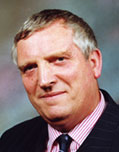The US-based National Equipment Register (NER) has launched a 24-hour service enabling law enforcers and insurers to check the validity of product identification numbers (PIN) on stolen equipment.
NER operations manager Glen Sider said many thefts were incorrectly entered into police and insurance company computers because of a wide variety of PIN formats or serial numbers on farm and construction equipment.
NER hopes the PINcheck service would increase the accuracy of equipment theft reporting and improve the success of police investigations, leading to more equipment recoveries and arrests.
There were thousands of PINs in NER's electronic database. Each equipment manufacturer has different PIN formats, which can also change mid-product line, Sider said. Forklifts were included in the data.
Law enforcers and insurers can contact NER 24 hours a day, seven days a week, to check if a PIN is correct for any make, model, type or year of equipment. PINcheck can be integrated into electronic and online processes, an NER statement said.
Serial numbers or PINs were used for identifying forklifts for maintenance, examinations, truck or component recalls, and sales, hire and rental documentation.
 David Ellison |
David Ellison, chief executive of the UK Fork Lift Truck Association (FLTA), said serial numbers were easily removed but could deter "ad hoc theft". More than 20 forklift thefts were reported to the FLTA each year.
Counterbalance forklifts were most commonly stolen in the UK, "maybe because they were most likely to be left outside", he said.
The FLTA has a "security alert system" to warn the association's dealer members if they buy a stolen forklift.
"If a member company, or one of their customers, has a truck stolen they forward details to us in a set format. We pass on the same details to all members overnight using a broadcast fax system.
"Stolen trucks are often taken out of the country, as part of organised crime, to the Middle East or Eastern Europe. Once they are reported missing, they are rarely seen or heard of again," Ellison said.
He said a national register for stolen forklifts was a good idea if it did not incur costs for users.
Sider said NER charged annual fees for larger fleets like United Rentals, RSC Equipment Rental and Hertz rental companies, and USD30 per machine for a lifetime registration.
Japanese Industrial Vehicles Association senior manager Ken'ichiro Takase said he had not heard much about forklift thefts in Japan.
"There is no statistical data for stolen forklifts in Japan.
"As far as I know, no association or government offices have undertaken initiatives to recover stolen equipment," Takase said.
NER maintains a national database of equipment ownership consisting of 13 million records and a database of equipment theft, consisting of 80,000 records. NER claims to have assisted in the recovery of more than USD10 million of stolen equipment.
The Belgium-based European Confederation of Equipment Distributors (ECED) has an online database of stolen machinery. The ECED is a lobby group for 2,000 equipment dealers and renters in Europe.
The National Plant & Equipment Register, in Bath, UK, maintains an international database of owned and stolen equipment that includes construction equipment and agricultural machinery.